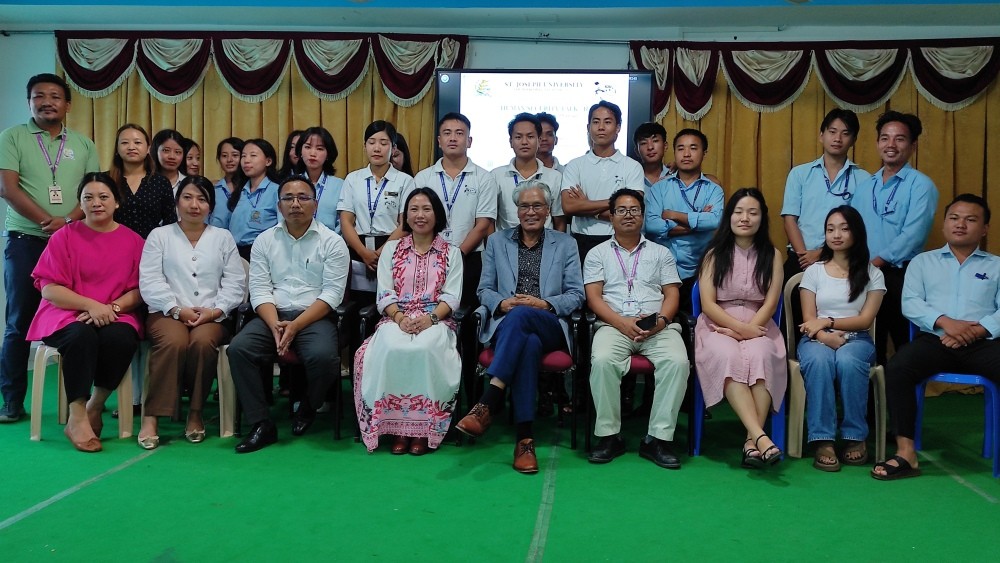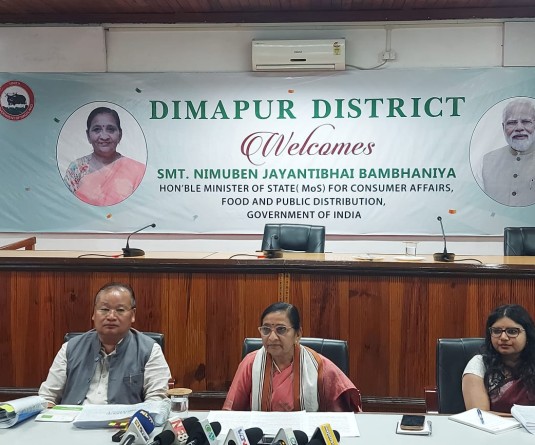Participants, speakers during the second edition of the Human Security Talk, titled “Community Security in Nagaland,” which was held at St Joseph University.

DIMAPUR, OCTOBER 9 (MExN): The Department of Political Science at St. Joseph University hosted the second edition of the Human Security Talk, titled “Community Security in Nagaland,” attracting academics and community leaders to discuss the unique security challenges facing the region.
Coordinated by Dr. Somingam Mawon, Associate Professor, the annual event aimed to analyze issues such as threats from state security forces, the marginalization of minority communities, and risks to the indigeneity of local populations.
The discussion was framed by insights from the 1994 Human Development Report by the UNDP, which emphasizes principles of human dignity and community security as central to the concept of human security. Participants reflected on adapting policies to the socio-cultural and political landscape of Nagaland to enhance community security strategies.
Dr. Visier Meyasetsu Sanyu, author and President of the Naga Overseas Association, delivered a keynote address underscoring the importance of community security in Nagaland. He highlighted how collective and group-oriented structures often take precedence over individual frameworks, emphasizing the role of clans, villages, and tribes as primary agents of security. Dr. Sanyu argued that these indigenous systems provide effective community protection, offering valuable lessons to the wider world.
He also pointed out the limitations of state-led security, particularly under the Armed Forces Special Powers Act (AFSPA), citing the Oting incident of 2021 as a stark example of the state's failure to protect communities. “AFSPA grants military forces extensive powers, undermining the freedom from fear,” he noted, while also addressing the influence of corrupt dynamics within Naga society.
In her opening remarks, Dr. Shonreiphy Longvah, another Associate Professor, provided a theoretical framework for the discussion. She asserted that community security is vital for fostering trust and social cohesion, which are essential for societal functioning. Dr. Longvah criticized state-centric security models for often neglecting the specific needs of contemporary communities.
The event concluded with a Q&A session where the coordinator of the event noted that the Naga Hills, now part of Nagaland, were once a minority district under Assam, with community insecurity playing a crucial role in Nagaland's creation. The session was chaired by Sedevinuo Yhome and vote of thanks delivered by K. Pangyau Phom, both of whom are post-graduate students.





